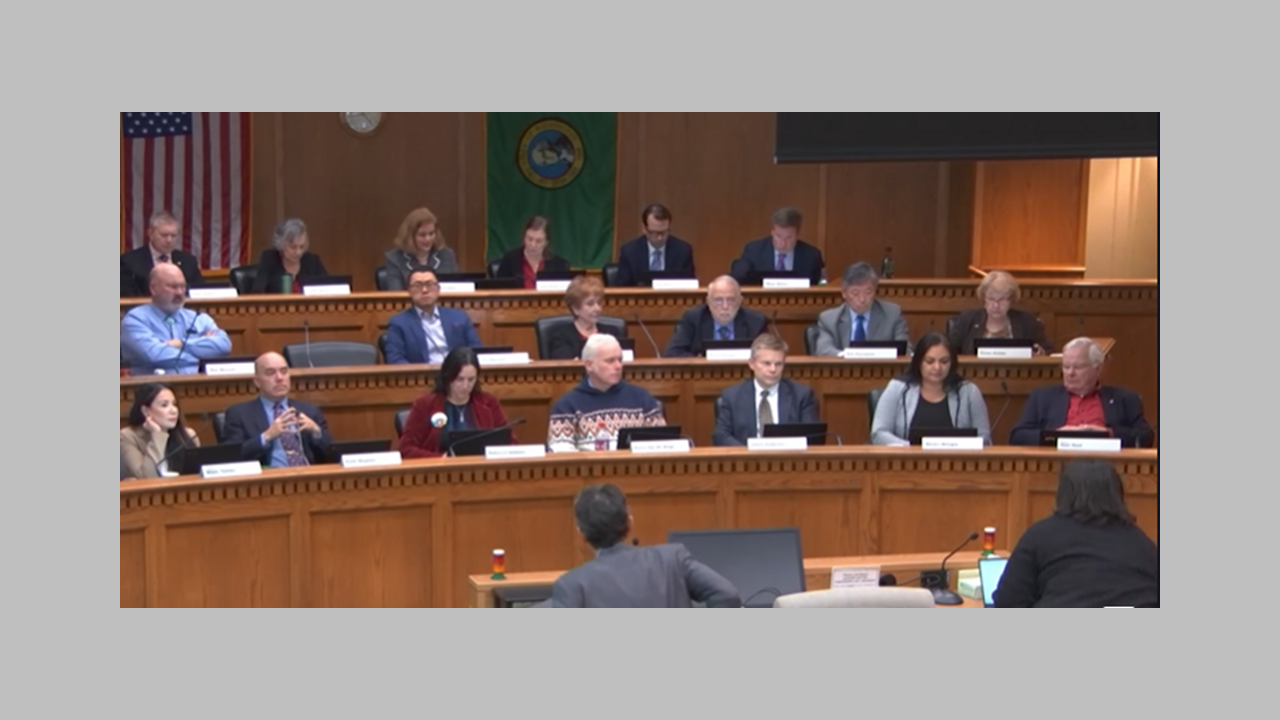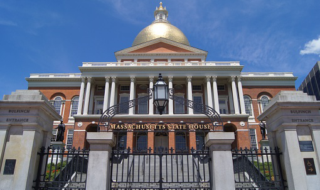Topics:
January 22, 2023
NFIB, Trial Bar Negotiating Workplace Fairness Bills
State Director Patrick Connor reports from Olympia on the small-business agenda for the legislative and political week ending January 20.
NFIB has engaged on nearly two dozen bills during the first two weeks of the 2023 Washington legislative session. The overwhelming majority thus far concern labor and workplace issues. In addition, we are participating in negotiations on at least two other issues that may become bills shortly: a business personal property tax exemption, and contractor bond increases plus a homeowner recovery fund.Labor
- HB 1136, Requiring employers to reimburse employees for necessary expenditures and losses. This bill originally contained a new private right of action allowing workers to sue employers to receive reimbursement for company related expenses. NFIB worked with the prime sponsor and negotiated an agreement with the trial lawyers’ association to remove the new private right of action and resolve expense reimbursement disputes through the wage payment act process. This would allow a worker an administrative remedy to more quickly receive payment, while also preserving the right to sue if no agreement can be reached. The Department of Labor & Industries (L&I) is working on language to make these changes in the bill. Some additional modifications may be needed either in the bill draft or through rulemaking if the bill passes. NFIB testified in support of the bill based on the agreement reached with the trial lawyers.
- HB 1197 and SB 5310, allowing psychologists to serve as attending physicians in workers’ compensation PTSD claims. NFIB testified with concerns in the House Labor & Workplace Standards Committee about this L&I proposal. The department’s own data shows at least one in four of these claims require pharmacological intervention, but psychologists lack legal authority to write prescriptions. This means a psychologist must be supervised by a medical professional who can write prescriptions in at least 25% of these claims. That is already current practice. Moreover, NFIB pointed out that the House Health Care & Wellness Committee is considering legislation to give psychologists authority to write prescriptions. The bill received a public hearing but has not yet been scheduled for further action. If that bill fails, this proposal does nothing to change the status quo. And, L&I has yet to provide data demonstrating this bill would result in more providers willing to treat worker PTSD claims, especially in underserved rural areas.
- SB 5110, Adding penalties for certain prohibited practices in chapter 49.44 RCW. Senate Labor & Commerce Committee chair, and bill prime sponsor, Sen. Karen Keiser has fast-tracked this bill. It was heard on January 12, approved by her committee on January 17, and already sent to the Senate Rules Committee for placement on the Senate floor calendar. Basically, the bill creates a private right of action allowing a worker, job applicant, or prospective applicant to sue an employer for alleged violations of several labor regulations for which there is no current penalty under the law. In addition to actual damages, a successful plaintiff could be awarded a penalty against the employer of $500 – $1,000. NFIB opposes the bill.
- SB 5111, Concerning payments for accrued and unused sick leave for certain construction workers. This bill, also by Sen. Keiser, would require construction firms to cash-out a worker’s accrued but unused sick leave upon separation from the employer. This would apply to union construction workers called out for day work, project-only assignments, or other temporary situations. Sick leave accrual and payment is and should be a subject for collective bargaining agreements. We are also concerned the bill, if enacted, could later be expanded to apply to non-union workers. NFIB opposes the bill.
- SB 5217, Concerning the state’s ability to regulate certain industries and risk classes to prevent musculoskeletal injuries and disorders. This year’s ergonomics bill, sponsored by Sen. Manka Dhingra, is substantially more limited than last year’s sweeping legislation on the topic. Under the proposal, L&I could undertake rulemaking once per year on a specific industry that has an ergonomics (WMSD) injury rate twice that of the overall State Fund average. L&I would also make grants available to qualifying State Fund employers to help offset the cost of equipment purchased in an effort to reduce these injuries. NFIB is reviewing the legislation, but likely to oppose granting L&I this rulemaking authority.
- SB 5286, Paid Family & Medical Leave program bail out. As we predicted, the state’s PFML fund is nearly bankrupt due to over-utilization, including COVID-related claims. The same business groups that pressed the Legislature to create the PFML program are now supporting a rate increase, primarily on workers, along with as much as a $350 million transfer, to maintain solvency and create an account reserve. The new rate will double from 0.04 percent of wages when the program launched in 2020 (yes, just three years ago) to 0.08 percent of wages for 2023. The bill would cap the tax at 1.2%, allowing another 50% rate hike sometime in the future – triple the initial tax rate. NFIB is monitoring this legislation.
Right to Repair
- HB 1392, Promoting the fair servicing and repair of digital electronic equipment. NFIB continues to support and participate in stakeholder discussions to perfect Rep. Mia Gregerson’ s bill establishing a “right to repair” personal electronic devices, such as cell phones, tablets, laptops, and desktop computers. Apple remains opposed, as do two tech trade associations beholden to the trillion-dollar global corporate juggernaut: TechNet and the Consumer Technology Industry Association. The latter represents tech firms, not consumers, despite its clever name. As have previous iterations, this version of the bill would require manufacturers of certain personal electronic devices to sell instructions, parts, tools, and related information to individuals and independent repair shops at fair market value so these devices could be repaired rather than replaced. This will save consumers time and money, as well as reduce the number of these items sent into the waste stream. NFIB supports the bill, as do some 65% of our members, according to state ballot results.
Margins Tax
- SB 5482 would replace the state’s existing Business & Occupations (B&O) tax with a Texas-style margins tax. NFIB is still reviewing the 169-page bill, which is scheduled for public hearing at 10:30 a.m. Thursday, January 26, in the Senate Business, Financial Services & Trade Committee. This proposal appears to exempt businesses with $1 million or less in gross receipts from the tax, and allows businesses above that threshold to choose among several deductions: a flat amount (e.g. $1 million), a fixed percent of gross (e.g. 30%), the actual cost of goods sold, or compensation paid, when determining taxes owed. To make the plan revenue neutral, the new tax rate is expected to be roughly 3% of a firm’s adjusted gross revenue. However, businesses with annual gross receipts (more than $1 million) up to $5 million, could elect to pay 1.75% with no deductions, instead of the higher rate less their preferred deduction. The bill would also eliminate nearly all B&O tax preferences. Larger firms are likely to oppose the bill since their tax liability may increase under the proposal. Home Depot has already reported it expects to pay $11 million more under the proposed margins tax than their current B&O rate. This issue is on the current NFIB state member ballot. NFIB will take a position based on either the current ballot question or a special ballot explaining the specifics of the proposal now that a bill has been introduced.
- January 13—NFIB, Trial Bar Negotiating Workplace Fairness Bills
- January 7—Small Business Day in Olympia, February 7
 Photo snip courtesy of TVW website
Photo snip courtesy of TVW website
State:
Get to know NFIB
NFIB is a member-driven organization advocating on behalf of small and independent businesses nationwide.
Related Articles

July 3, 2025
Washington Comment on Latest NFIB Jobs Report
If future ones are any better, it won’t be because of anything happening…
Read More


July 1, 2025
NFIB Urges Lawmakers to Support Main Street and Override Veto o…
The measure would curb unelected officials’ ability to impose costly new re…
Read More


June 30, 2025
NFIB Slams MA Legislature for Slipping New “Secure Choice…
“Again, lawmakers’ policy choices and pro-small-business rhetoric are in…
Read More


June 30, 2025
NFIB Members Talk Small Business Issues on New Podcast Episodes
The Small Business Rundown talks website ADA compliance, the Small Business…
Read More







